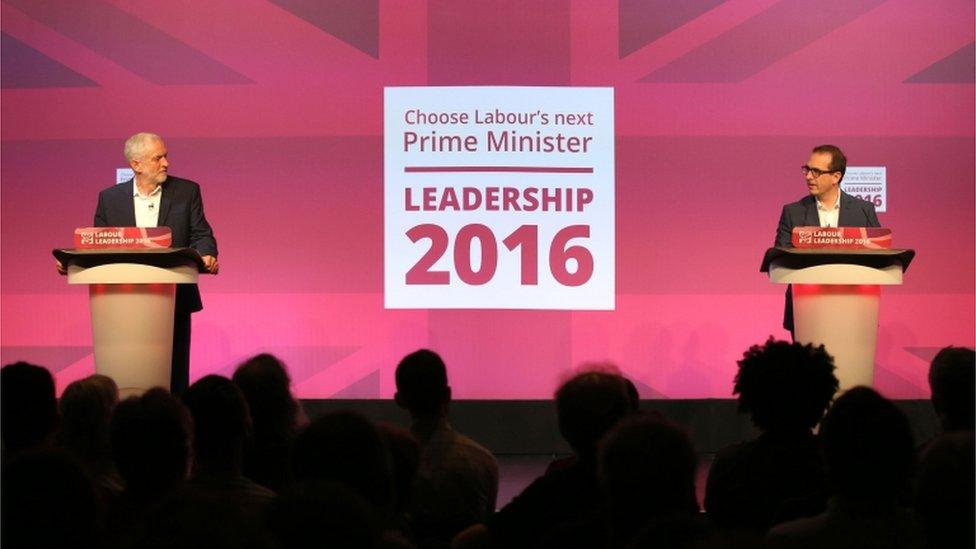Owen Smith and Labour's Scottish independence question
- Published
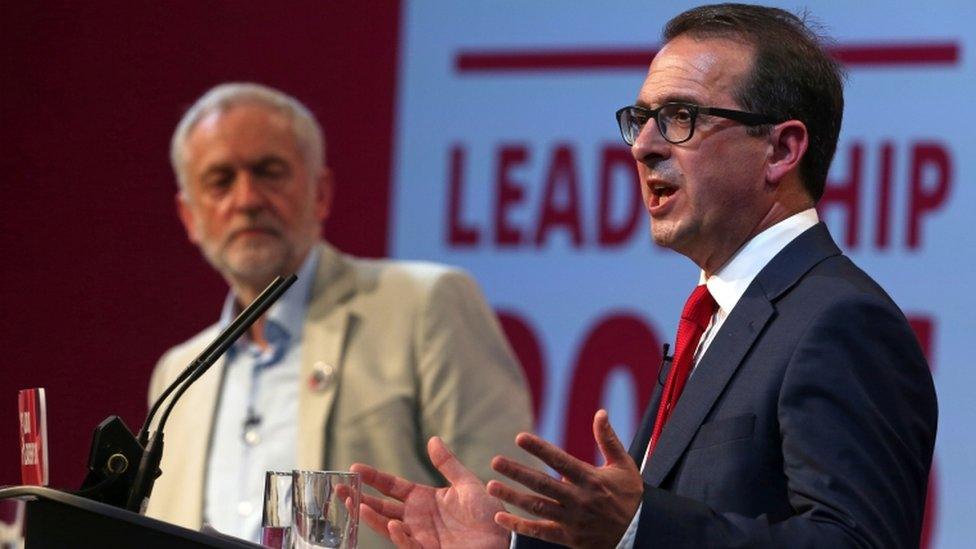
Owen Smith declared that he would not oppose a second independence referendum
When one is standing for significant office in public life, it does not do to sound indecisive. Voters tend not to cleave to potential leaders who, when asked about a major policy issue, reply: "Me? Not a clue. What am I like, eh?"
And so Owen Smith was admirably concise and definitive when asked on the wireless whether he would oppose a second independence referendum. "Of course not", he declared.
Then, as he thought further, the caveats arrived. The Scottish Labour Party would take the decision on whether to endorse such a plebiscite.
It would be driven, if at all, by demand from the Scottish people. And Labour continued to believe that Scotland's future properly lay within the UK.
Was this, then, in total a concise, clear statement of Labour's position from one of the contenders to lead the party (the other being the incumbent Jeremy Corbyn)? To borrow Mr Smith's formula, of course not.
Constitutional conundrum
Why such uncertainty then, after apparent decisiveness? Two factors, I think, enter the equation. Firstly, politicians are intuitively wary of standing against the general notion of consulting the people in a referendum.
So, when asked if the people should be consulted, the instinctive political response is to say yes, even if one does not devoutly wish the consummation on offer in the plebiscite.
Secondly, there is the continuing Scottish question. Which, for Labour, is not a subtle constitutional conundrum. Rather it is this. Why doesn't Scotland vote for us any longer?
Owen Smith knows that his party has been partially supplanted in Scotland by the SNP. He knows that the SNP's chief aim is independence, enabled via a referendum. Hence, his variegated comments anent indyref2.
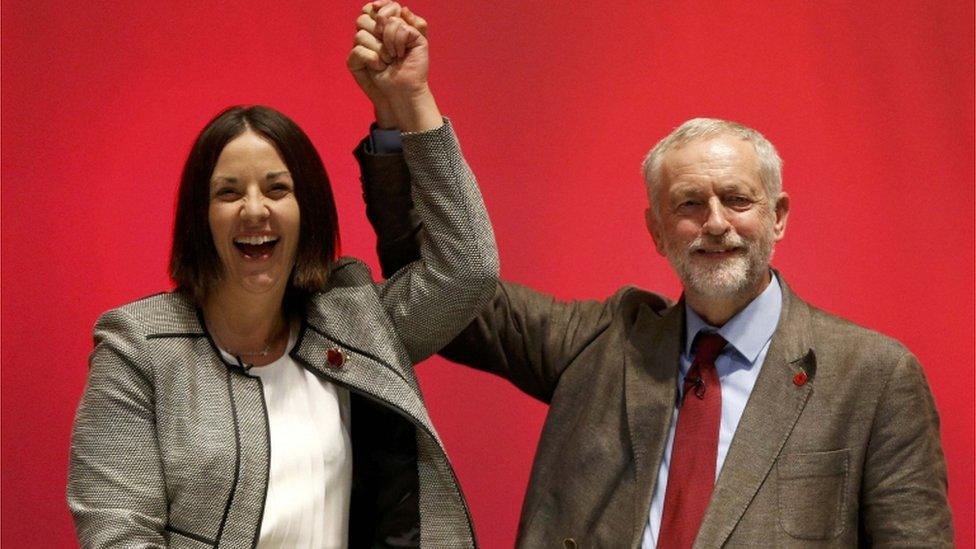
Kezia Dugdale has backed Owen Smith in his challenge to Labour leader Jeremy Corbyn
A portion of the SNP's vote is undoubtedly the faithful, those who yearn daily for independence. Another portion, more recent converts, is those who want to see broader Scottish interests defended - and view the SNP as the best and most consistent vehicle for delivering same.
Labour's dilemma in Scotland is that it can never quite match the SNP pitch on "standing up for Scotland". At least, not ineluctably, not incontestably. For as long as that is the dominant factor in voters' minds, the SNP's rivals may struggle to some extent.
By contrast, the Conservatives have set out, with evident success, to attract that section of the electorate which adheres, daily, to the Union. That, they say, is standing up for Scotland's true interests. Never, they say further, will they countenance any threat to that, referendum or otherwise.
A party divided
To repeat, that has been relatively successful. Relatively. Arguably, that pitch is confined, constrained. It has its limits.
It was once thought that the SNP could not gain elected parliamentary power because they would be comparably constrained by their independence offer. However, they have successfully broadened their appeal by promoting the second element in their constitution - which is defending and projecting Scotland in all circumstances.
Labour is now competing with that offer - and struggling very badly. Its problems, of course, are compounded by a UK leadership contest which has fundamentally divided the party, including in Scotland.
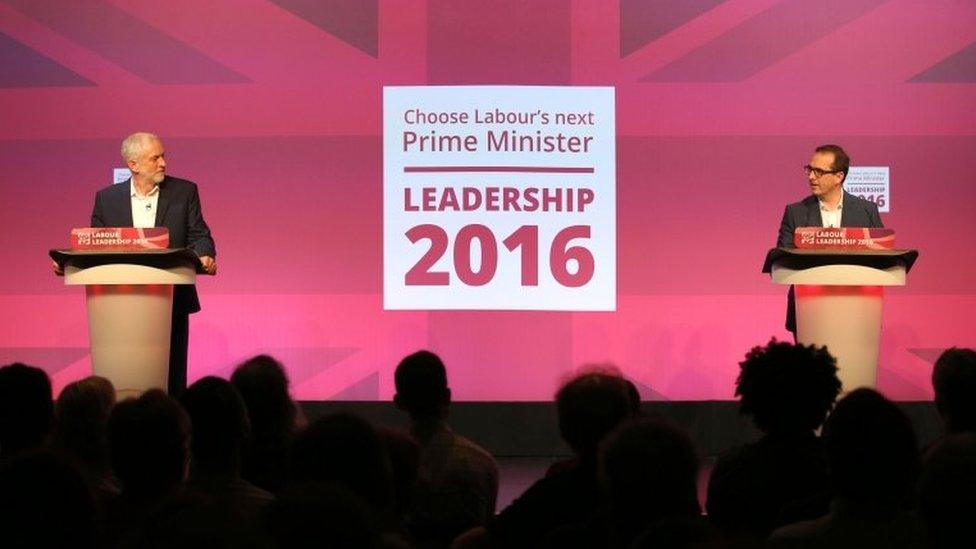
Mr Smith and Mr Corbyn held a Labour leadership debate in Glasgow
At the leadership hustings in Glasgow last week, the loudest, most prolonged cheers were for comments which reflected internal tension, not unity. They were for comments which implied that Mr Corbyn was a loser or that Mr Smith was disloyal. Decidedly not good for harmony.
And, to be frank, Mr Smith is not alone in struggling slightly on the issue of a second independence referendum.
Alex Rowley, the party's deputy leader, has said he would "not oppose" such a plebiscite, citing the SNP's manifesto statement reserving the right to call a further poll in certain circumstances.
Earlier, Kezia Dugdale delivered one or two faint, Delphic hints to the effect that such a development might have to be considered. It was duly discussed internally - and the outcome, for now, appears to be opposition to a further referendum.
It might be argued that Labour's lack of clarity is honourable. The party does not want independence yet is, arguably, reluctant to pre-empt popular consultation. However, honourable or not, it scarcely adds to the impression of a party with a clear programme for Scotland.
Sensible stances?
Equally, one might also argue that there is a fair degree of imprecision on the SNP side. The first minister says a further plebiscite is "highly likely" - but reminds us with other remarks that such a verdict leaves open the option of sidestepping a further ballot.
Again, it is arguable that the FM's stance is sensible. All other things being equal, I do not believe she would be contemplating an early referendum: just two years after the 2014 defeat with the oil price down and Scotland's deficit up.
But things are no longer as they were. Britain voted for Brexit - while Scotland voted for remain. It is incumbent upon political leaders to reflect upon that. Hence today's UK Cabinet talks. Hence the SG's Programme for Government next week which will have the consequences of Brexit at its core, although the substance will be domestic policy and legislation.
Ms Sturgeon and the new minister, Mike Russell (to whom congratulations) will examine minutely the options for maintaining Scottish links with the EU within the new emerging UK constitutional set-up. Then and only then will they consider indyref2.
Will there be a further plebiscite in the near future? The real answer is "mibbes aye, mibbes naw". But only Kenny Dalglish could get away with that on the wireless.
- Published31 August 2016

- Published25 August 2016
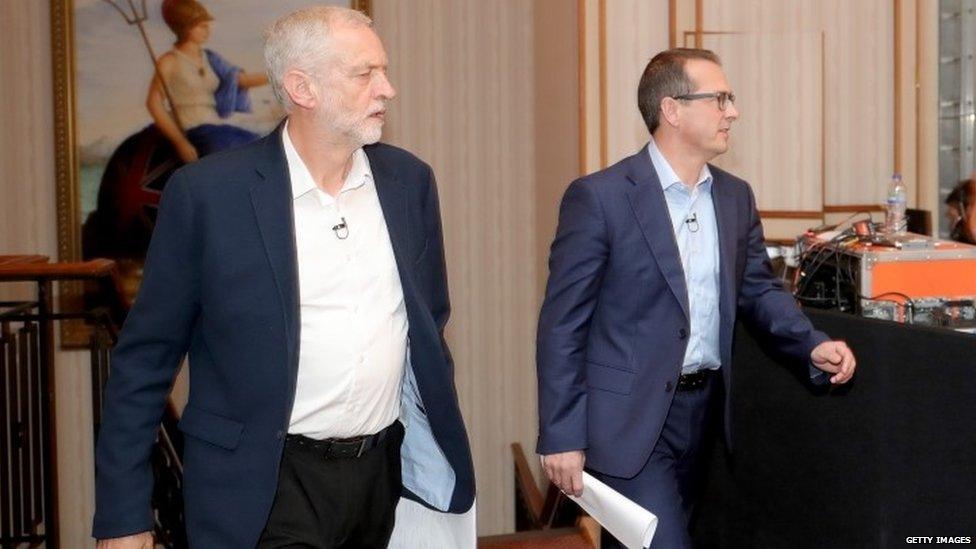
- Published25 August 2016
